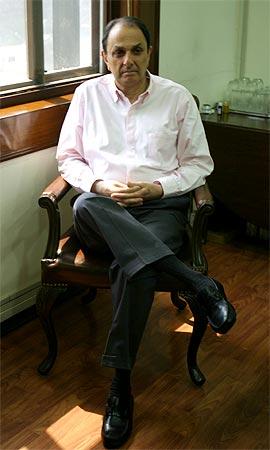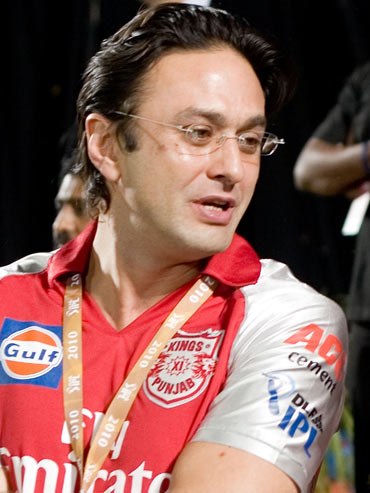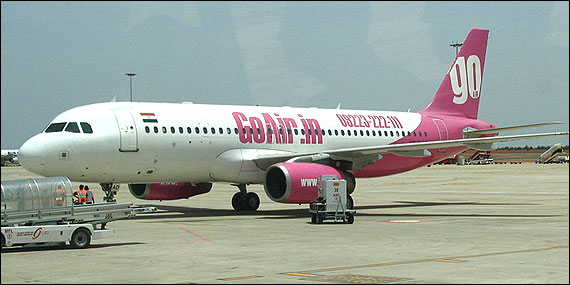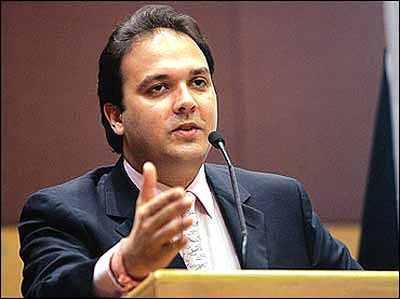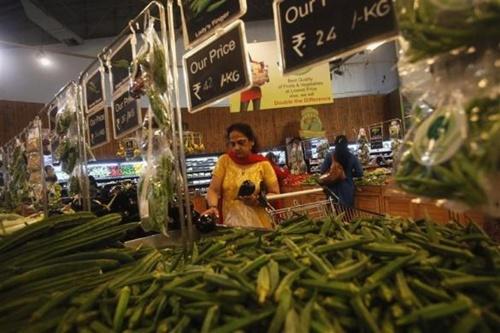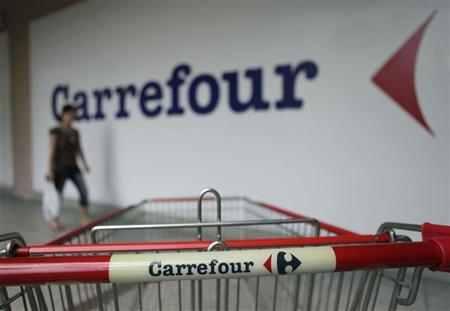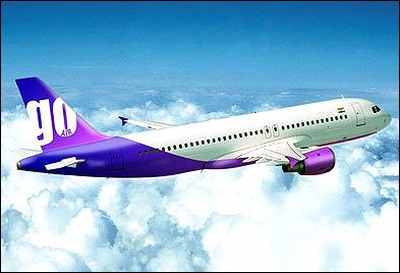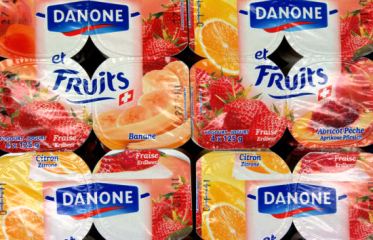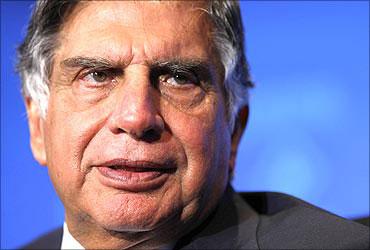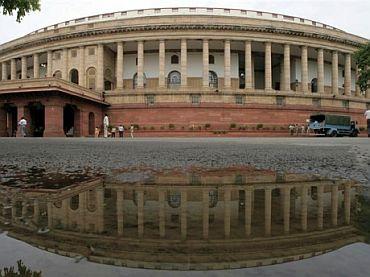 | « Back to article | Print this article |
How I missed the bus: Nusli Wadia
At 68, Nusli Wadia says he is still in the 'driver's seat' in the Rs 10,000-crore (Rs 100-billion) Wadia Group, as age is irrelevant as long as a person can add value.
The man, who has been called a corporate samurai, thinks it's an unfair label as he has 'never entered into any dispute unless he felt wronged'.
In this interview -- his first in over three years -- Wadia also talks about the road ahead for his group.
Excerpts from the interview with Business Standard:
Does the Wadia Group have any retirement age for its board?
Age is irrelevant as long as a person can add value. Keshub Mahindra, for example, is in his eighties, and has been on my board longer than I have and continues to bring valuable insight and counsel.
Ratan Tata and I have been friends and colleagues throughout our working lives and I would be delighted if he continues on our board as long as he wants.
Click NEXT to read further. . .
How I missed the bus: Nusli Wadia
Do you have a succession plan?
No succession plan has been firmed up as I have not applied my mind to this issue as of now.
It will be put in place at the appropriate time.
What is currently happening is that both my sons, Ness and Jeh, are rotating across companies to have a more robust understanding of the respective businesses.
Jeh in the past was in Bombay Burmah as the Joint MD while Ness was the Joint MD of Bombay Dyeing.
They have now swapped roles.
Earlier, Jeh used to work with me in the chairman's office and now Ness does that.
He also works on what is very important and dear to us -- our charities, hospitals, baugs and colleges.
They are also on the boards of all the Wadia Group companies.
My biggest blessing in life is that my sons are together and work very well to grow the future of the group.
Click NEXT to read further. . .
How I missed the bus: Nusli Wadia
Every father thinks his sons will remain together, though there have been quite a few examples to the contrary.
You are only looking at instances that did not work.
There are many examples in corporate India of brothers working together.
Take the Ruias or the Lalbhais and several others.
Click NEXT to read further. . .
How I missed the bus: Nusli Wadia
The Wadia Group has clearly missed the bus.
Many smaller companies came after you and moved on to become bigger entities. You have only one company (Britannia) which is in the billion-dollar club. What went wrong?
To some extent, yes (I did miss the bus), but that's because I chose not to manipulate the system.
God has given me more than I deserve.
I want to sleep peacefully at night. I don't want a private jet and I don't have the driving ambition to be the richest man.
I want to live by a set of values that is integral to anything that we do.
Click NEXT to read further. . .
How I missed the bus: Nusli Wadia
Are things really so bad that you can grow only by manipulation?
All the policies related to polyester and the polyester chain during the eighties were manipulated.
You had to manage the system for all licences.
If you remember, when I imported my plant, it was lying in the docks and my import licence was not given to me.
The entire duty structure those days was manipulated.
I was not able to do what my competitor did, but I was not willing to change my values for anything.
But your close friend, Mr Tata, managed spectacular growth in the past two decades.
Please remember Mr Tata was not in the sectors I was in during the eighties.
The sectors I was in were unfortunate for me.
But later, the manipulation of the system has hit almost every business house in other sectors as well.
Click NEXT to read further. . .
How I missed the bus: Nusli Wadia
Your group did not get into emerging sectors such as financial services and telecom.
Yes, we didn't get into financial services though we had seriously looked at telecom.
We had a plan and a partner when the government was giving the first set of licences, but we decided against it as we did not believe in manipulating the system to get our licence.
The government has recently taken a lot of policy steps to get reforms moving. What's your take?
More than policies, it is about good and efficient governance -- where there is clear accountability for results.
Take, for example, FDI in retail.
It is a non-issue. India is a country of shopkeepers.
We already have a fantastic distribution system, which is convenient for the Indian consumer as there is a small shop in almost every nook and corner. Multinationals will come as it suits them.
Click NEXT to read further. . .
How I missed the bus: Nusli Wadia
If that's your opinion on FDI in retail, why did you speak to Carrefour to set up a retail chain in India?
Yes, we studied the entire project with Carrefour but realised that there was no money to be made.
Retail distribution in India is very good, economical and efficient and the margins are narrow and, therefore, hard to compete with.
After we did our study, I asked Carrefour why should I invest in this business if there are no returns at the end of the day?
Now that FDI in aviation has been cleared, will GoAir look at a foreign partner?
We are certainly exploring but the objective is not just to raise money.
We are looking for a partner who can add value, and bring knowledge to the table so that the alliance is beneficial to both.
If GoAir partners another airline, it will be done to provide convenience and efficient connectivity to our customers in India and those who travel to India from overseas and want domestic connectivity.
Click NEXT to read further. . .
How I missed the bus: Nusli Wadia
What are your plans for GoAir?
Our focus has been to first establish our brand and the business model and then pursue growth.
Our fleet is young and by 2019 we will have 75 to 80 Airbus Neos, which burn 10 per cent less fuel.
But I must add the Indian aviation industry is facing an unlevel playing field.
We pay twice as much for fuel compared with the rest of the world and we are at the mercy of three fuel companies. Travelling by air is not a luxury any longer but a necessity.
Look at the opportunity we have. Just one airline, Ryan Air, flies more passengers than the entire Indian aviation industry put together.
The current policies do not favour growth.
For instance, airlines can import fuel from abroad but there is no infrastructure for airlines to store fuel either at ports or at airports.
Taxation on fuel is onerous, and no other country in the world pays tax on fuel.
Why should fuel be the only commodity that pays a sales tax of almost 22 per cent ad valorem and is not declared as goods?
Fuel is not even subject to Modvat as is the case with other products and commodities. Our fares are lower than Europe but with double the fuel cost.
Click NEXT to read further. . .
How I missed the bus: Nusli Wadia
Are you looking at any M&A opportunity in the food business or an investor in Britannia?
There is absolutely no question of getting an investor in Britannia.
What we are doing in Britannia is strengthening our brands and strengthening the supply chain for those brands.
Take manufacturing, for instance.
In a few years, we will control 65-70 per cent of our own production by setting up greenfield units and taking equity in our partner production companies.
We looked at several food companies in the past and chose not to go ahead as we want M&As to add value. The important question is whether an acquisition is accretive to the return on investment and not merely an addition to turnover.
Click NEXT to read further. . .
How I missed the bus: Nusli Wadia
Do you think Bombay Dyeing should have capitalised on the retail apparel sector?
I don't think anyone who ventured into apparel in a big way made money.
More and more competition is continuing to emerge from smaller companies.
The potential of good returns in apparel is very challenging; we did enter the business but decided not to pursue.
You are considered a difficult joint venture partner. You fought with Danone for Britannia. Do you agree with this assessment?
I just had one joint venture and that was with Danone.
I joined Britannia in 1992 and Danone was my partner till 2009.
Britannia took a decision to get into the dairy business in 2003 and for Danone dairy was its core business and they were keen to pursue it in India on their own.
Biscuits, on the other hand, were not part of Danone's core business and they had decided to disinvest.
Britannia went into the dairy business with Fonterra and Danone decided to enter dairy on its own and withdrew from Britannia.
Like most disengagements, this one too had its own challenges but in the end it was resolved amicably.
You have the image of a corporate samurai, considering your battles with the Ambanis and many others.
That's history.
I can only say if somebody challenges me and attempts to decide my destiny, it is something which I cannot and will not accept.
I have only responded to a challenge and have never entered into a dispute unless I have felt wronged.
Click NEXT to read further. . .
How I missed the bus: Nusli Wadia
Which are the business houses you admire the most?
The Tatas and the Mahindras.
I know Keshub Mahindra, who has been a mentor to me, since I was six.
We used to ride together in the Mahalakshmi race course.
Both the Tatas and Mahindras have done a terrific job.
Both groups are very high on ethical values, which is a great achievement in these times.
You and Ratan Tata were part of the Prime Minister's committee that made far-reaching recommendations on food security and unshackling Indian industry? Aren't you disappointed that the situation remains as grim as ever on both the fronts?
I am extremely disappointed that very few of our recommendations have been implemented.
We spent a lot of our time in understanding the context and making relevant and pragmatic recommendations.
I met almost every stakeholder across ministries -- from the food secretary to officials in the ministries of agriculture, food, fertilisers, etc -- and all the information we gathered was from them.
They are more aware and knowledgeable about the issues and problems than anyone else and yet the tragedy is that these issues and problems are not addressed or resolved.
Our committee wrote about the need to set up cold-storage facilities and an efficient supply chain, which would have helped both the farmers and consumers.
India still destroys 25 per cent of the food it produces and over 400 million Indians lack proper nutritious food.
More wheat is eaten by rats in India than produced in Australia and more vegetables are wasted in India than are consumed in the UK.
Click NEXT to read further. . .
How I missed the bus: Nusli Wadia
We recommended modern efficient silos and storage facilities to be created but unfortunately wheat continues to be stored in the open or in inefficient silos where it rots.
It is a travesty that despite an adequate quantity of food produced in the country, the standard of living of over 400 million Indians is one of the worst in the world.
Our statistics on nutrition are so sad that we should hang our head in shame.
So, has the government lost the plot?
The barometer of India's success should not come from the stock market or the wealth of a section of Indians.
The real barometer for success is having access to quality food, education, health care, affordable housing and even something as essential as drinking water. Inclusive growth in reality, not in concept, is the key success factor.
The saddest part is that everyone in the government and the bureaucracy knows what is wrong with the system, and what needs to be done and yet there is no action on the ground.
